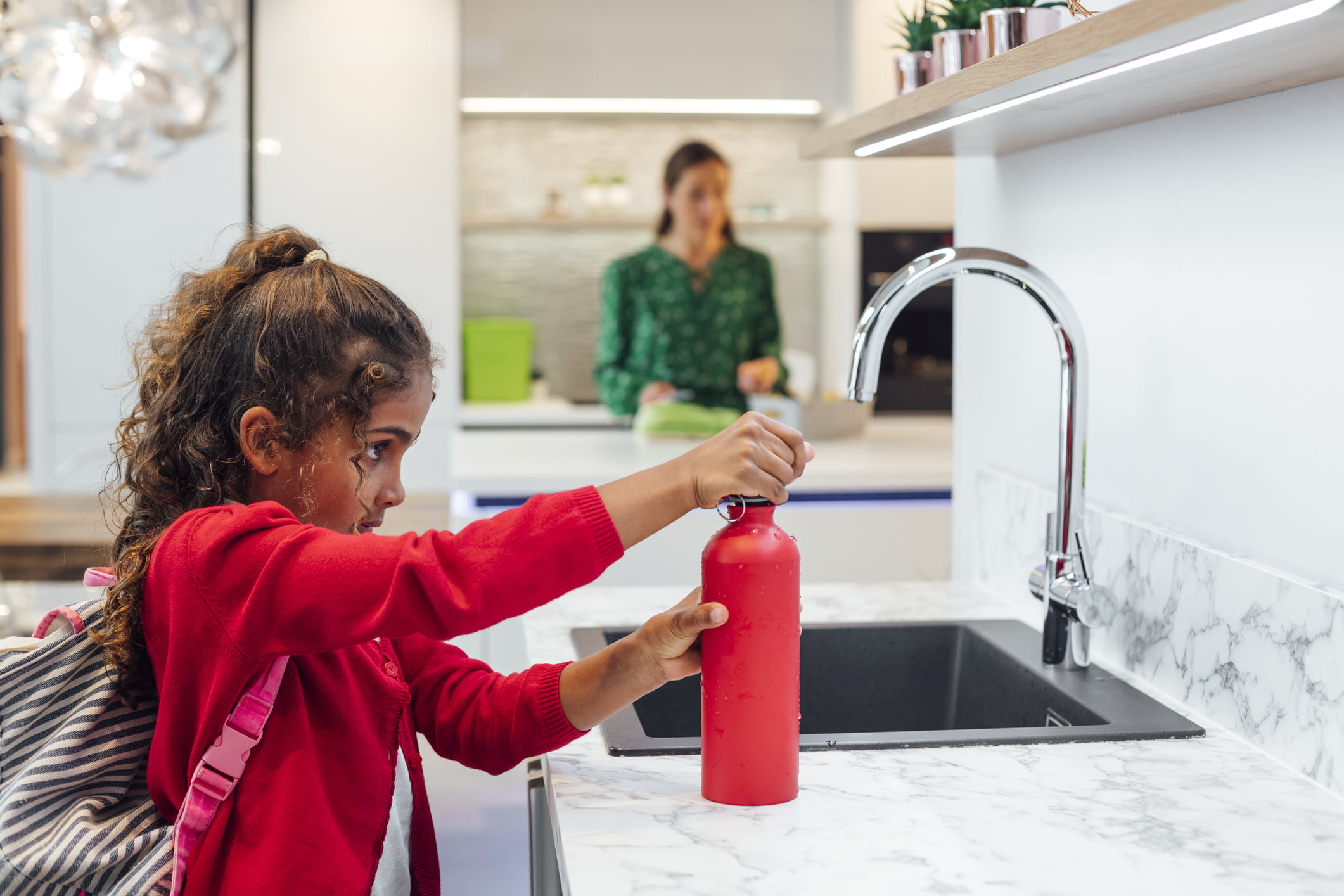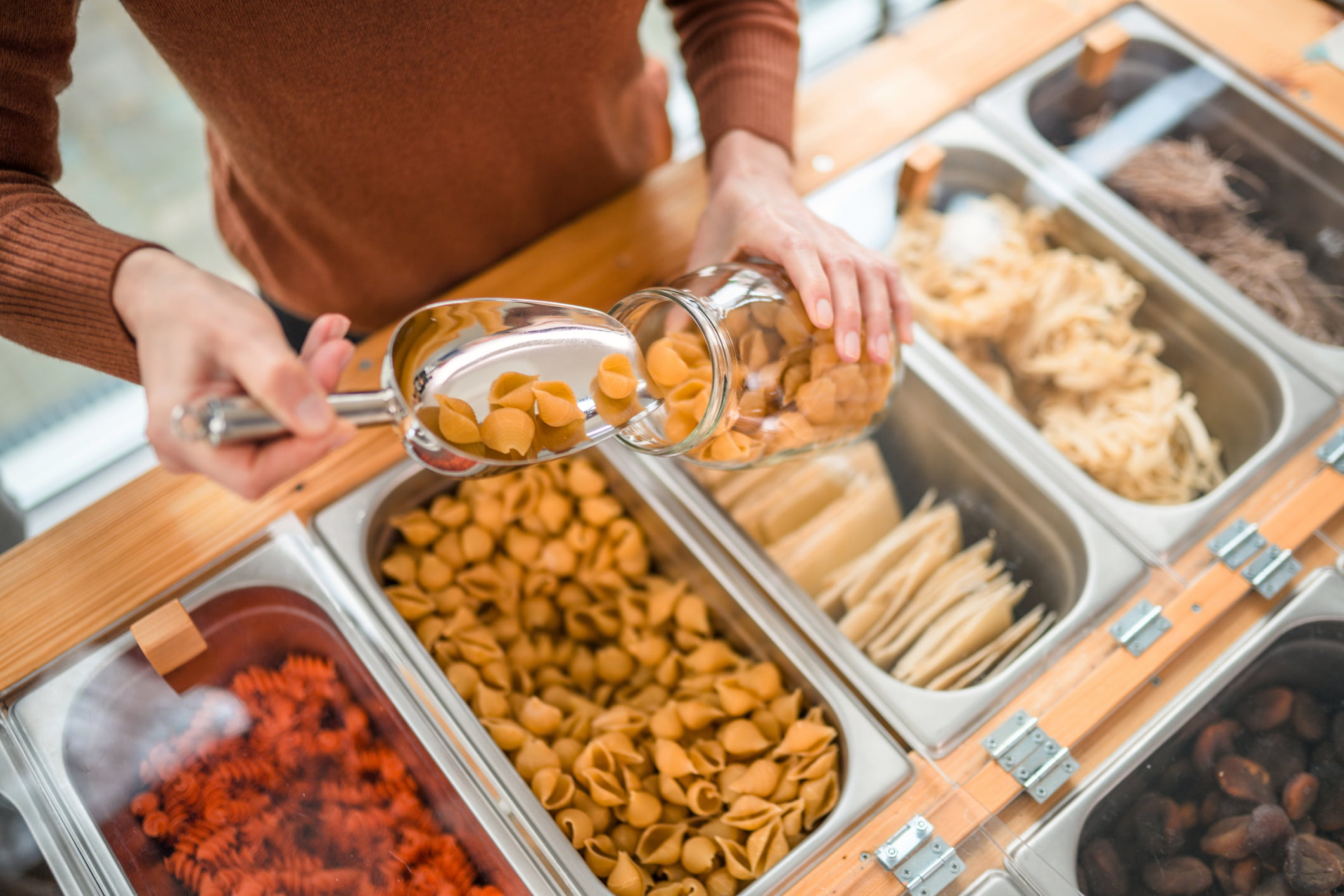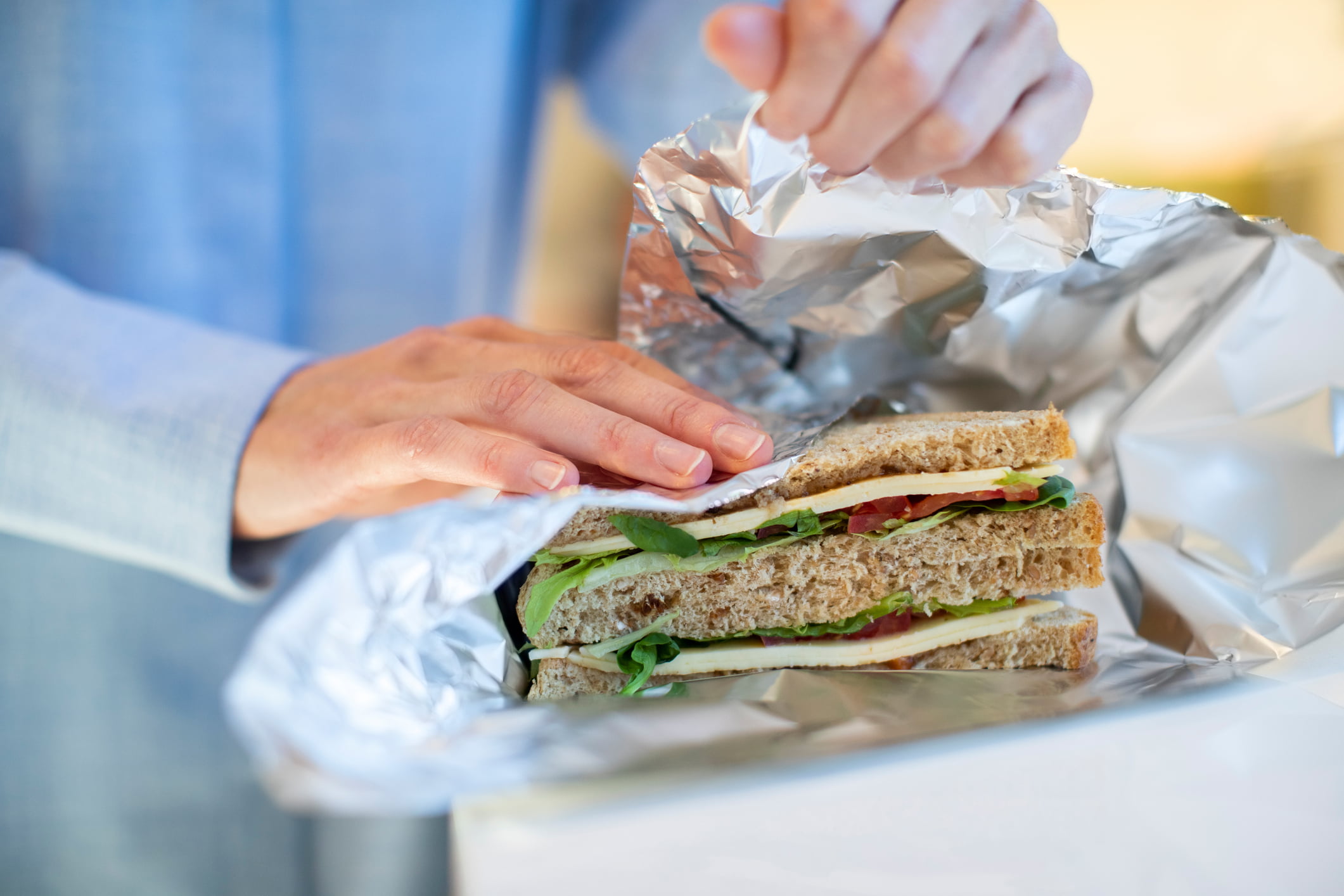Around seven million coffee cups are thrown away everyday in the UK alone – and less than 1% of these can be recycled. Remember to bring your own cup the next time you need a caffeine fix.
Plastic pollution is one of the world’s most pressing environmental issues, with around 300 million tonnes of plastic waste produced globally every year.
Single-use plastic, which was once considered to be a valuable product with many uses, is now causing severe problems for the environment, with around eight million tonnes of plastic ending up in our oceans every year. According to UNEP, half of all plastic produced is designed to be used once, and then thrown away.
Plastic Free July is a global movement that helps millions of people to be part of the solution to this problem. We’ve taken inspiration from the campaign to come up with our own list of 10 ways to avoid single-use plastic and help protect our planet.
Carry a reusable coffee cup with you
Remember your bags for life at the shops
Supermarkets now charge 10p for single-use plastic bags, so why not invest in a few bags for life and bring these with you the next time you head out for groceries?
Avoid buying bottled water
Did you know that one million plastic drinking bottles are purchased every minute globally? Help to lower this number by investing in and using a reusable bottle.

Buy loose fruit and vegetables
Supermarkets are increasingly selling loose fruit and vegetables to avoid wasteful plastic packaging. If you need a bag, choose a paper or washable cloth one instead.
Choose refillable cleaning products
This is a trickier one, as most cleaning products need to be stored in a leak-proof container. You can reduce your plastic waste by opting for refillable versions of these products.
Use shampoo and conditioner bars
Several companies now sell a range of bathroom products – from shampoo and conditioner to soap and deodorant – in bars. See if you can ditch the bottle for a bar.

Find your local refill shop
Refill shops around the UK allow you to bring your own storage jars and containers to stock up on cupboard essentials like pasta, rice, cereals and nuts.
Ditch single-use straws and cutlery
Did you know that plastic straws and stirrers can take up to 200 years to decompose? Choose paper straws or wooden cutlery where possible– or even better, carry your own spork with you!
Opt for foil instead of cling film
Cling film is made from a type of plastic that cannot be recycled. Use foil to cover leftover food in the fridge instead or invest in some reusable food coverings to fit all bowl sizes.

Sign up for a milk round
The once traditional milk round is growing in popularity across the UK. Glass bottles can be reused and recycled – and many companies offer more than just milk in their deliveries.
Watch the video below to find out more about Plastic Free July, or read our blog on the latest innovations from around the world in the war on plastic.
Related blogs
Innovations in the war on plastic: making progress in 2021
From plastic shopping bags to water bottles, plastic pollution is now one of the world’s most pressing environmental issues.
BlogCan supermarkets be sustainability superstars?
There is little doubt that changes at the biggest supermarkets could have a notable impact in reducing greenhouse gas emissions and waste.
BlogTips to help you avoid food waste and reduce carbon emissions
We waste an estimated 1.3 billion tonnes of food every year - around one third of all food produced for human consumption.